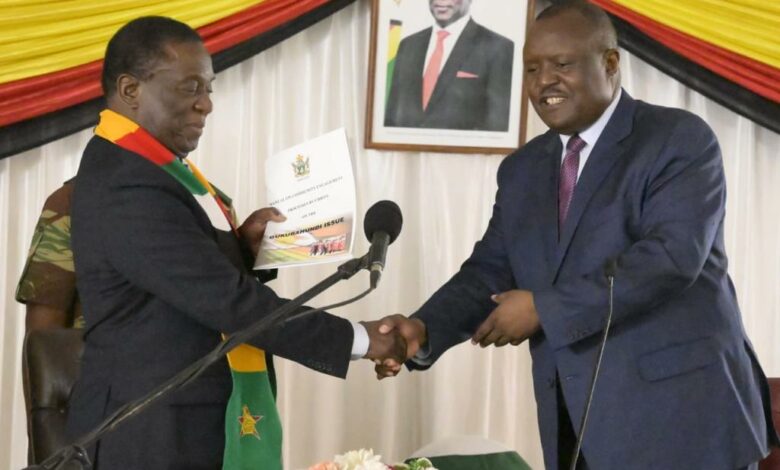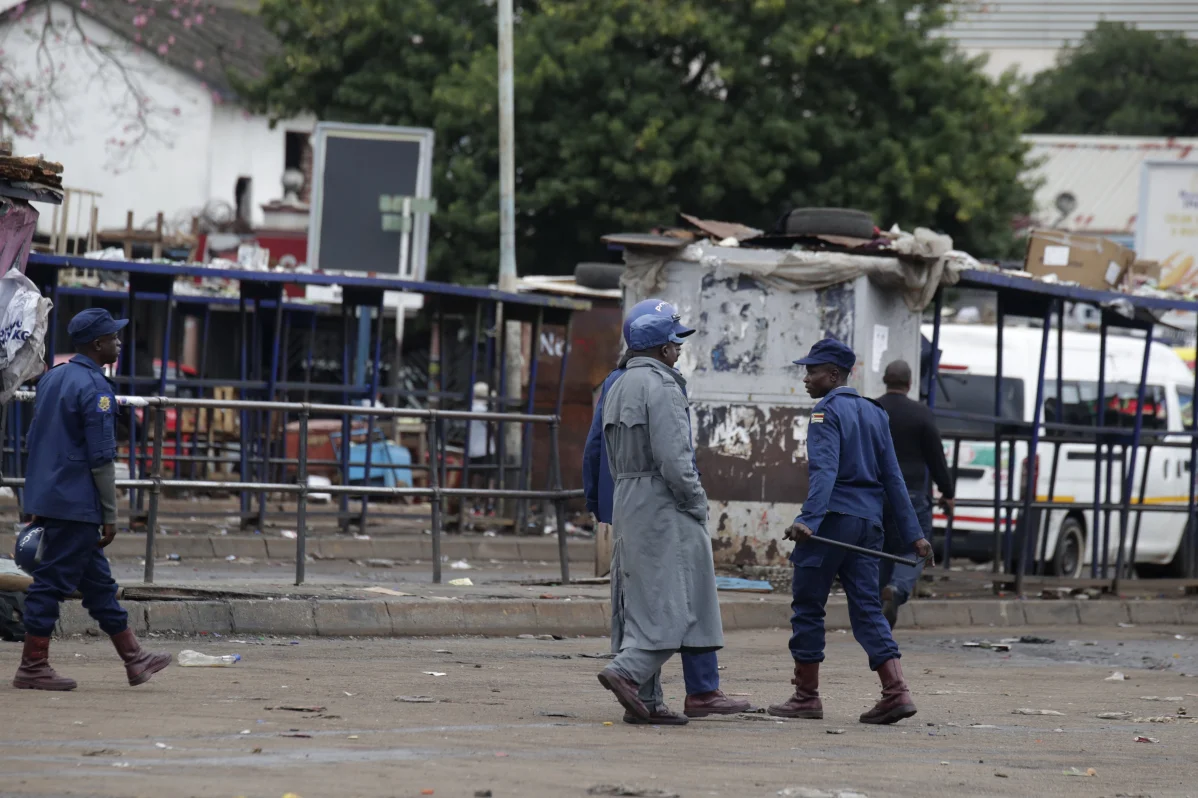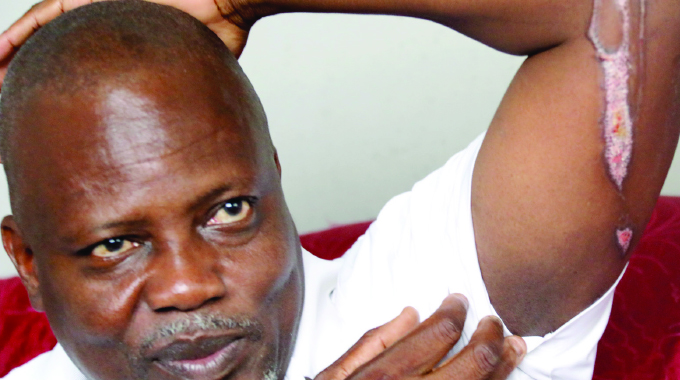BULAWAYO – President Emmerson Mnangagwa’s government has reiterated its unpopular position there shall be no public apologies for the 1980s Gukurahundi massacres as Zimbabwe finally set in motion, an unpredicted guided process to listen to the concerns of survivors of the state sponsored bloodbath.
Speaking at the Bulawayo State House Monday during the launch of a manual to guide community hearings into the Gukurahundi massacres, Local Government Minister July Moyo said the issue was long dealt with when former President Robert Mugabe and former Vice President Joshua Nkomo signed the 1987 unity accord which ended bloodshed in the two provinces.
Moyo was presenting a summary of issues agreed between President Mnangagwa and traditional chiefs in Matabeleland on how the hearings will be conducted.
“… That the national apology issue was resolved by former President Robert Mugabe and former Vice President Joshua Nkomo when the Unity Accord was signed in 1987.
“That was agreed in your (Mnangagwa) discussion with the chiefs,” Moyo said.
The Gukurahundi massacres which claimed an estimated 20 000 civilians in Matabeleland and Midlands, according to independent sources, was initially being handled by the Retired Justice Sello Nare chaired National Peace and Reconciliation Commission but was later passed on to traditional chiefs.
Mnangagwa further agreed with chiefs that Gukurahundi be defined “as the state and organised dissidents and not a Ndebele-Shona cultural conflict so as to address current perceptions and achieve national healing and peace.”
According to the template presented by Moyo, “Each chief will spearhead the resolution of Gukurahundi issues by presiding over hearings or consultations in his or her area of jurisdiction.
“That exhumations and reburial will be resolved on case by case basis customs centric and the relevant chief should give guidance and direction.”
Mnangagwa presided over the launch of the start of the Gukurahundi hearings in Bulawayo.
Chiefs’ Council president Fortune Charumbira produced a 14-page document to guide the process of conducting the hearings.
The surprise decision by Mnangagwa to finally handle the motive issue of government atrocities in Matabeleland has been viewed by commentators as an attempt by the Zimbabwe incumbent to curry favour with the restive Ndebele constituency as the country heads for yet another election in which Mnangagwa is seeking another term next year.
Mnangagwa’s name features prominently among those who led the atrocities.
















